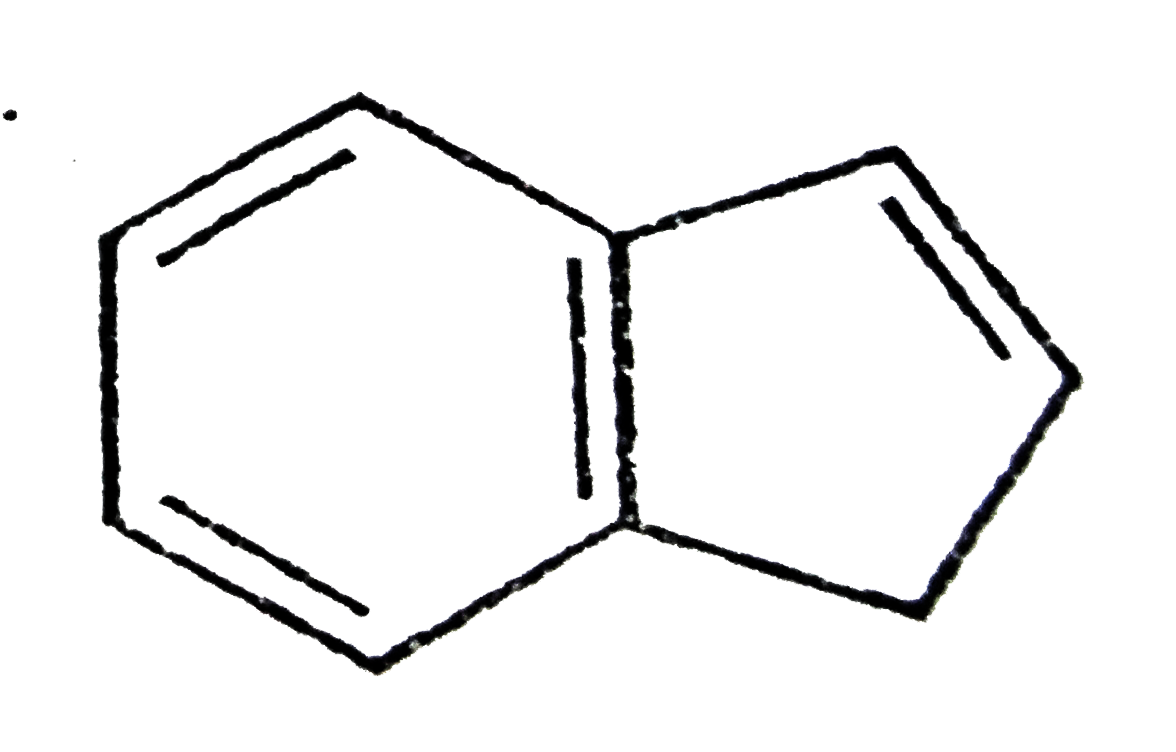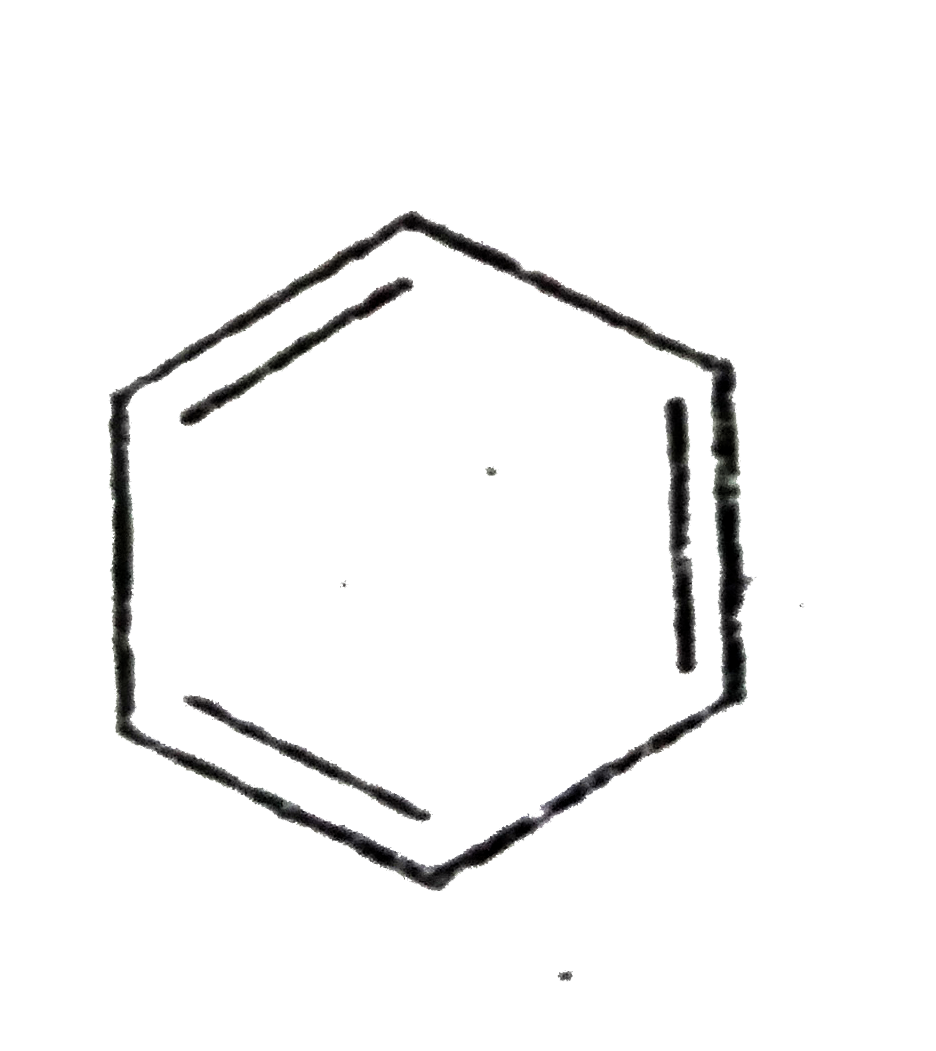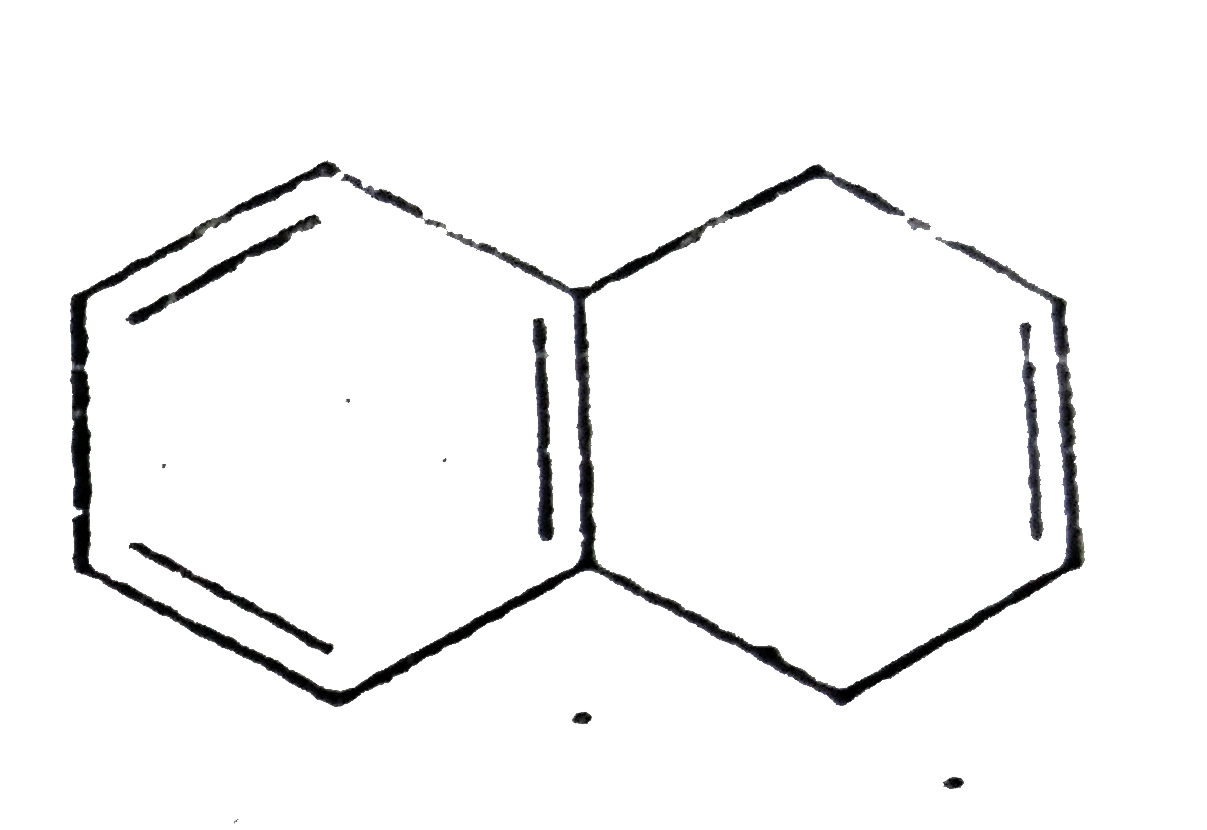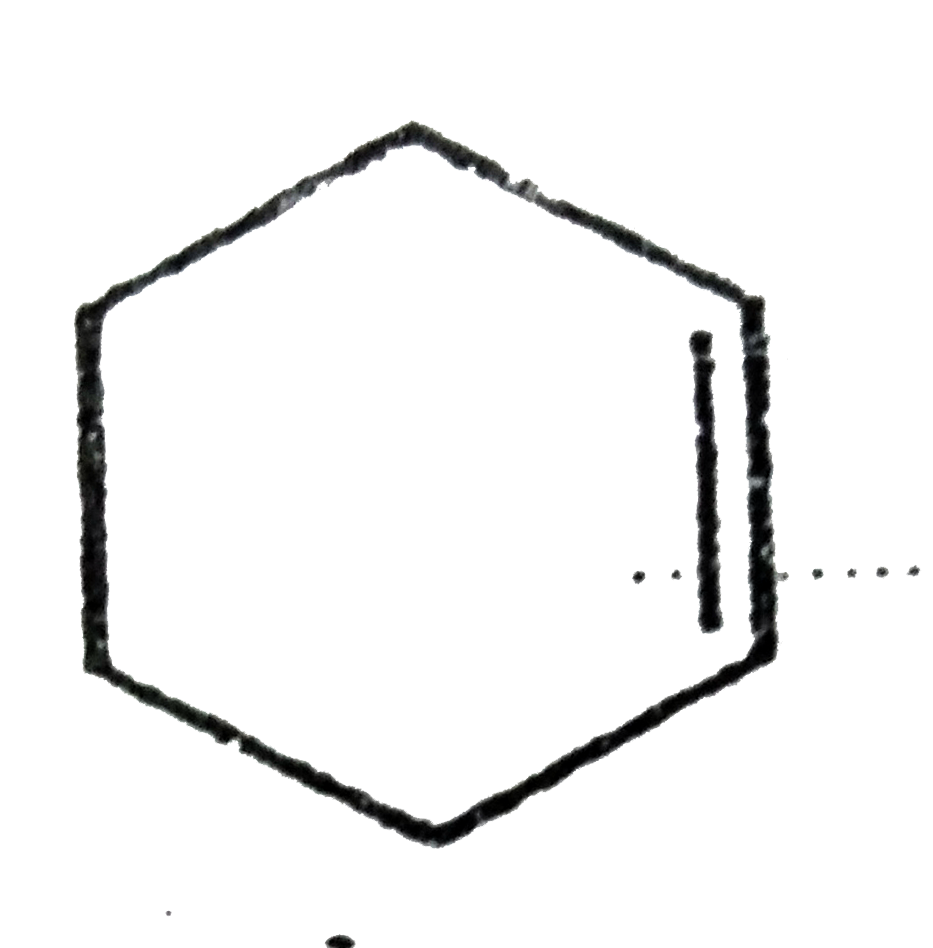Which of the following compound is most reactive towards an electrophite (E+) ?




The correct Answer is:A
To determine which compound is most reactive towards an electrophile (E⁺), we need to analyze the stabilization of the carbocation that forms during the electrophilic addition reaction. The more stable the carbocation, the more reactive the compound will be towards the electrophile.
1. Identify the Compounds:
- Let's say we have four compounds: A, B, C, and D. We need to analyze each one for its reactivity towards an electrophile.
2. Understand Electrophilic Addition:
- In electrophilic addition reactions, the pi bond (which is electron-rich) attacks the electrophile (which is electron-deficient). This results in the formation of a carbocation.
3. Analyze Carbocation Stability:
- The stability of the carbocation formed after the electrophilic attack is crucial. The more stable the carbocation, the more reactive the compound will be towards the electrophile.
4. Evaluate Each Compound:
- Compound A: When it reacts, it forms a carbocation that is resonance-stabilized by three pi bonds. This makes it highly stable.
- Compound B (Benzene): This compound forms a carbocation that is resonance-stabilized by two pi bonds. It is stable but less so than Compound A.
- Compound C: Similar to Compound B, it forms a carbocation that is resonance-stabilized by two pi bonds, making it comparable to Compound B in terms of stability.
- Compound D (Cyclohexene): When this compound reacts, it forms a carbocation that is not resonance-stabilized. This makes it the least stable and therefore the least reactive towards the electrophile.
5. Conclusion:
- Based on the stability of the carbocations formed, Compound A is the most reactive towards the electrophile because it has the most stable carbocation due to resonance stabilization by three pi bonds.
Final Answer:
Compound A is the most reactive towards the electrophile (E⁺).
- Let's say we have four compounds: A, B, C, and D. We need to analyze each one for its reactivity towards an electrophile.
- In electrophilic addition reactions, the pi bond (which is electron-rich) attacks the electrophile (which is electron-deficient). This results in the formation of a carbocation.
- The stability of the carbocation formed after the electrophilic attack is crucial. The more stable the carbocation, the more reactive the compound will be towards the electrophile.
- Compound A: When it reacts, it forms a carbocation that is resonance-stabilized by three pi bonds. This makes it highly stable.
- Compound B (Benzene): This compound forms a carbocation that is resonance-stabilized by two pi bonds. It is stable but less so than Compound A.
- Compound C: Similar to Compound B, it forms a carbocation that is resonance-stabilized by two pi bonds, making it comparable to Compound B in terms of stability.
- Compound D (Cyclohexene): When this compound reacts, it forms a carbocation that is not resonance-stabilized. This makes it the least stable and therefore the least reactive towards the electrophile.
- Based on the stability of the carbocations formed, Compound A is the most reactive towards the electrophile because it has the most stable carbocation due to resonance stabilization by three pi bonds.
Compound A is the most reactive towards the electrophile (E⁺).
Topper's Solved these Questions
- HYDROCARBONSBOOK - AAKASH INSTITUTE ENGLISHCHAPTER - HYDROCARBONSEXERCISE - SECTION-C OBJECTIVE TYPE QUESTIONS (MORE THAN ONE OPTIONS ARE CORRECT)
12 Videos
- HYDROCARBONSBOOK - AAKASH INSTITUTE ENGLISHCHAPTER - HYDROCARBONSEXERCISE - SECTION-D LINKED COMPREHENSION TYPE QUESTIONS
7 Videos
- HYDROCARBONSBOOK - AAKASH INSTITUTE ENGLISHCHAPTER - HYDROCARBONSEXERCISE - ASSIGNMENT SECTION-A COMPETITION LEVEL DIFFER BY
50 Videos
- HALOALKANES AND HALOARENES BOOK - AAKASH INSTITUTE ENGLISHCHAPTER - HALOALKANES AND HALOARENES EXERCISE - ASSIGNMENT SECTION -D
15 Videos
- HYDROGENBOOK - AAKASH INSTITUTE ENGLISHCHAPTER - HYDROGENEXERCISE - ASSIGNMENT (SECTION - D) (Assertion-Reason Type question)
15 Videos
Similar Questions
Knowledge Check
Which one of the following is most reactive towards water?
ASodiumBPotassiumCCalciumDAluminiumWhich of the following is most reactive towards aqueous NaOH?
AC6H5ClBC6H5CH2ClCC6H5BrDBrC6H4BrWhich of the following haloalkanes is most reactive?
A1-ChloropropaneB1-bromopropaneC2-chloropropaneD2-bromopropane
Which one of the following is most reactive towards electrophilic attack?
View SolutionWhich of the following phosphorus is the most reactive?
View SolutionWhich one of the following is most reactive towards electrophillic reagent?
View SolutionWhich among the following is the most reactive?
View SolutionWhich of the following is most reactive for hydrolysis ?
View Solution
